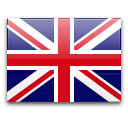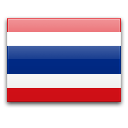Brose Thailand, a leading manufacturer in the automotive supply industry, understands the importance of safety and well-being in a factory environment. Located in Rayong, Brose operates as a crucial production site that delivers high-quality automotive systems. In such a fast-paced, precision-focused environment, it’s essential to ensure that employees are not only skilled in their respective roles but also prepared to handle emergencies.
To reinforce its commitment to workplace safety, Brose Thailand recently organized a 1-day First Aid, CPR, and AED training course through Bangkok First Aid. This initiative equips employees with life-saving skills that can be critical in a manufacturing setting.

Why First Aid, CPR, and AED Training is Vital in a Factory Setting
The nature of factory work presents unique challenges and potential hazards. From operating heavy machinery to handling electrical systems and working in high-traffic zones, employees in manufacturing environments face increased risks of accidents or medical emergencies. Having staff trained in first aid, CPR, and AED usage is crucial for maintaining a safe workplace, minimizing injuries, and saving lives.
Here are some key reasons why this training is particularly valuable for Brose Thailand:
1. Immediate Response to Workplace Injuries
Factories, like the Brose plant in Rayong, are environments where accidents such as cuts, burns, falls, and even fractures can happen. First aid training empowers employees to administer immediate care, reducing the severity of injuries and stabilizing victims until professional medical assistance arrives. Being able to respond quickly and effectively can prevent minor injuries from becoming more serious.

2. CPR for Cardiac Emergencies
With a large workforce, there is always a possibility that an employee could experience a heart-related emergency, such as a heart attack or cardiac arrest. Knowing how to perform CPR (Cardiopulmonary Resuscitation) is essential in these situations. CPR keeps blood and oxygen flowing to vital organs, significantly increasing the chances of survival until medical professionals arrive. In an industrial setting, where stress and physical exertion are common, this skill can be life-saving. In this course, we teach adult and child CPR.

3. AED Training for Sudden Cardiac Arrest
Automated External Defibrillators (AEDs) are life-saving devices that deliver electric shocks to the heart during sudden cardiac arrest. Brose Thailand, like many modern industrial facilities, may have AED devices on site, but without trained personnel, their effectiveness is limited. The course provides hands-on training to employees on how to confidently and correctly use AEDs in emergencies, ensuring a swift and effective response.

4. Preparedness for Chemical or Electrical Accidents
Manufacturing environments often involve the use of hazardous materials and complex machinery, making the risk of chemical burns, electrical shocks, or other industrial accidents higher. First aid training gives employees the knowledge to manage and respond to these specific types of injuries. This not only prevents further harm but also ensures that the injured person is treated appropriately before professional medical services arrive.
5. Reducing Downtime and Promoting a Culture of Safety
Having employees trained in first aid, CPR, and AED usage doesn’t just improve safety; it also boosts productivity. When workers feel secure in their environment, they can focus more on their tasks, knowing that they are in good hands should an emergency occur. Additionally, quick responses to incidents can reduce downtime caused by injuries and accidents, keeping operations running smoothly.

Brose Thailand: Leading by Example in Workplace Safety
By investing in this 1-day First Aid, CPR, and AED training, Brose Thailand demonstrates its commitment to the well-being of its workforce. Not only does this training enhance the safety of the employees, but it also reinforces Brose’s corporate values of care and responsibility. Creating a safe work environment goes hand-in-hand with maintaining operational excellence, which is key in the competitive automotive supply industry.
Long-Term Benefits of First Aid Training in the Manufacturing Industry
First aid and CPR training offer long-term advantages for companies like Brose Thailand:
- Reduced Workplace Injuries: Immediate response to accidents lowers the risk of serious injuries, promoting a healthier and safer working environment.
- Improved Employee Morale: Employees who feel their company is committed to their safety are likely to be more engaged and loyal, which can improve overall workplace morale.
- Regulatory Compliance: In many countries, including Thailand, workplace safety regulations require companies to maintain certain safety standards. First aid and CPR training help Brose Thailand stay compliant with local safety regulations.
- Enhanced Reputation: By prioritizing employee safety, Brose Thailand sets a standard in the manufacturing industry, enhancing its reputation as a responsible employer that values its workforce.

Conclusion
The 1-day First Aid, CPR, and AED training course at Brose Thailand is an essential step towards creating a safer and more prepared workplace. In a manufacturing setting where accidents can happen at any moment, being ready to respond quickly with life-saving skills is invaluable. By empowering employees to take action in emergencies, Brose Thailand not only protects its team but also maintains the high operational standards required in the automotive supply industry.
For companies interested in similar training opportunities, visit Bangkok First Aid for more information on how to equip your workforce with critical first aid, CPR, and AED skills.



